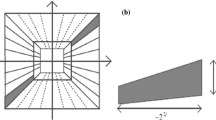Abstract
A brain tumor is an abnormal growth of cells in the brain. However, manually detecting brain tumors is hard because it is hard to find erratically shaped tumors with only one modality and time-consuming. In this work, a novel stationary wavelet-oriented luminance enhancement (SOLE) approach to denoise the multi-modal images. Initially, medical images like MRI, CT, and PET are gathered from publicly available datasets. These multi-modality images are divided into low and high-frequency sub-images using stationary wavelet transform (SWT), which has the advantage of preserving temporal features so that information loss can be stopped. Then the low-frequency and high-frequency images are processed with distribution and denoising modules to remove the noise, respectively. The approximation coefficient is pre-processed using multi-scale retinex with gamma correction for efficaciously retrieving the noise-free image. Consequently, the remaining coefficients are pre-processed using a multi-scale Gaussian bilateral filter, and tracking wavelet denoising (TWD) algorithm in the denoising module dynamically enhanced the color detail information without human intervention so that observed image contrast and visibility are well preserved. Lastly, noise-free image is reconstructed from sub-enhanced images using Inverse-SWT to detect brain tumors. Experimental results show that the proposed algorithm has a mean error rate of 0.03 compared to the other filters. The proposed SOLE technique achieves a less running time of 0.97 s, whereas other existing techniques such as K-SVD, DRAN, 2-stage CNN, and AMF-AWF achieve the running time of 6.9, 1.63, 1.52, and 8.75 s.
Access this chapter
Tax calculation will be finalised at checkout
Purchases are for personal use only
Similar content being viewed by others
References
Amin, J., Sharif, M., Haldorai, A., Yasmin, M., Nayak, R.S.: Brain tumor detection and classification using machine learning: a comprehensive survey. Complex Intell. Syst. 1–23 (2021)
Nazir, M., Shakil, S., Khurshid, K.: Role of deep learning in brain tumor detection and classification (2015 to 2020): a review. Comput. Med. Imaging Graph. 91, 101940 (2021)
Hu, A., Razmjooy, N.: Brain tumor diagnosis based on metaheuristics and deep learning. Int. J. Imaging Syst. Technol. 31, 657–669 (2021)
Irmak, E.: Multi-classification of brain tumor MRI images using deep convolutional neural network with fully optimized framework. Iran. J. Sci. Technol. Trans. Electr. Eng. 45, 1015–1036 (2021)
Khan, A.R., Khan, S., Harouni, M., Abbasi, R., Iqbal, S., Mehmood, Z.: Brain tumor segmentation using K-means clustering and deep learning with synthetic data augmentation for classification. Microsc. Res. Techn. 84, 1389–1399 (2021)
Ismael, S.A.A., Mohammed, A., Hefny, H.: An enhanced deep learning approach for brain cancer MRI images classification using residual networks. Artif. Intell. Med. 102, 101779 (2020)
Narmatha, C., Eljack, S.M., Tuka, A.A.R.M., Manimurugan, S., Mustafa, M.: A hybrid fuzzy brain-storm optimization algorithm for the classification of brain tumor MRI images. J. Ambient Intell. Hum. Comput. 1–9 (2020)
Badža, M.M., Barjaktarović, M.Č: Classification of brain tumors from MRI images using a convolutional neural network. Appl. Sci. 10, 1999 (2020)
Ghassemi, N., Shoeibi, A., Rouhani, M.: Deep neural network with generative adversarial networks pre-training for brain tumor classification based on MR images. Biomed. Signal Process. Control 57, 101678 (2020)
Wadhwa, A., Bhardwaj, A., Verma, V.S.: A review on brain tumor segmentation of MRI images. Magn. Reson. Imaging 61, 247–259 (2019)
Acharya, U.R., Fernandes, S.L., WeiKoh, J.E., Ciaccio, E.J., Fabell, M.K.M., Tanik, U.J., Rajinikanth, V., Yeong, C.H.: Automated detection of Alzheimer’s disease using brain MRI images—a study with various feature extraction techniques. J. Med. Syst. 43(9), 1–14 (2019)
Saba, T., Mohamed, A.S., El-Affendi, M., Amin, J., Sharif, M.: Brain tumor detection using fusion of hand crafted and deep learning features. Cognit. Syst. Res. 59, 221–230 (2020)
Rai, S., Bhatt, J.S., Patra, S.K.: An unsupervised deep learning framework for medical image denoising. arXiv preprint arXiv:2103.06575 (2021)
Sharif, S.M.A., Naqvi, R.A., Biswas, M.: Learning medical image denoising with deep dynamic residual attention network. Mathematics 8, 2192 (2020)
Sang, H., Xiang, L., Chen, S., Chen, B., Yan, L.: Image recognition based on multiscale pooling deep convolution neural networks. Complexity 2020 (2020)
Debnath, S., Talukdar, F.A.: Brain tumour segmentation using memory-based learning method. Multimed. Tools Appl. 78, 23689–23706 (2019)
Chang, Y., Yan, L., Chen, M., Fang, H., Zhong, S.: Two-stage convolutional neural network for medical noise removal via image decomposition. IEEE Trans. Instrum. Meas. 69, 2707–2721 (2019)
Dey, N., Rajinikanth, V., Shi, F., Tavares, J.M.R., Moraru, L., Karthik, K.A., Lin, H., Kamalanand, K., Emmanuel, C.: Social-group-optimization based tumor evaluation tool for clinical brain MRI of Flair/diffusion-weighted modality. Biocybern. Biomed. Eng. 39, 843–856 (2019)
Ali, H.M.: MRI medical image denoising by fundamental filters. In: High-Resolution Neuroimaging—Basic Physical Principles and Clinical Applications, vol. 14, pp. 111–124 (2018)
Author information
Authors and Affiliations
Corresponding author
Editor information
Editors and Affiliations
Rights and permissions
Copyright information
© 2023 The Author(s), under exclusive license to Springer Nature Singapore Pte Ltd.
About this paper
Cite this paper
Ahilan, A., Anlin Sahaya Tinu, M., Jasmine Gnana Malar, A., Muthu Kumar, B. (2023). Stationary Wavelet-Oriented Luminance Enhancement Approach for Brain Tumor Detection with Multi-modality Images. In: Bhateja, V., Yang, XS., Ferreira, M.C., Sengar, S.S., Travieso-Gonzalez, C.M. (eds) Evolution in Computational Intelligence. FICTA 2023. Smart Innovation, Systems and Technologies, vol 370. Springer, Singapore. https://doi.org/10.1007/978-981-99-6702-5_38
Download citation
DOI: https://doi.org/10.1007/978-981-99-6702-5_38
Published:
Publisher Name: Springer, Singapore
Print ISBN: 978-981-99-6701-8
Online ISBN: 978-981-99-6702-5
eBook Packages: Intelligent Technologies and RoboticsIntelligent Technologies and Robotics (R0)




